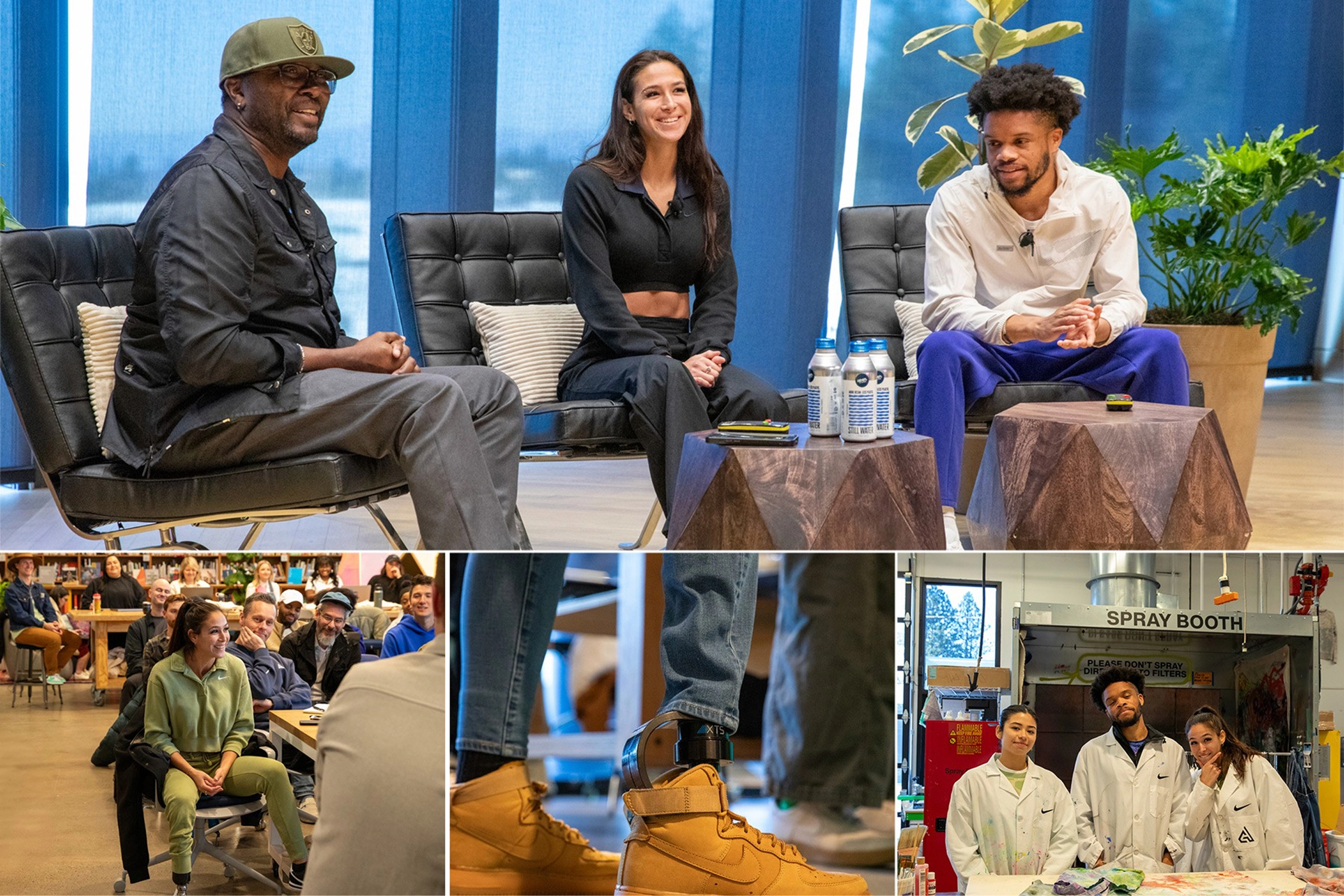Enabling Accessibility
We build the programs and partnerships to create a more flexible, accessible and equitable work environment for employees with disabilities.
NIKE’s culture of innovation is fueled by different perspectives. For over 20 years, this has been especially true in our work to create the future of access to sport, fashion and self-expression for all athletes*, including athletes with disabilities.

Our Accessibility Center of Excellence equips our teams with the knowledge and tools to drive meaningful change in the workplace, in local communities and on the world’s biggest stages for athletes with disabilities—which accounts for one in five people in the world today. The Center of Excellence enhances support for our employees with disabilities at each stage of their careers and creates a more inclusive future for athletes*, employees and communities worldwide through dynamic events like the Accessible Design Sprint. At the most recent design sprint, NIKE athletes Noah Malone (track & field), Beatriz Hatz (track & field) and Ixhelt González (wheelchair basketball) guided the sprint, providing personal insights into what performance, comfort and style mean for them.
Launched in FY24, GameOn is designed to expand and develop the talent pipeline of individuals with disabilities who pursue career in sports. The 12-month program is specifically designed to increase awareness and underscore the important of disability inclusion.
This annual event deepens awareness of disability inclusion across WHQ, EHQ, distributions centers and retail. In FY24, the second annual Accessibility Summit, hosted by NIKE’s Accessibility Center of Excellence and the Disability Network, featured a retrospective of EasyOn, Nike’s adaptive footwear innovation.
We partner with Disability:IN, a leading nonprofit resource for business disability inclusion worldwide, to help ensure we follow best practices for creating an accommodating and accessible experience for all NIKE athletes*.
In FY24, we launched a disability inclusion program in Japan and Korea focused on increasing representation of disabled talent in the talent pipeline. This included the creation of new disability inclusion playbooks for hiring managers and leveraging existing training to customize for local nuance to upskill teammates in HR, People Solutions, Talent Acquisition and retail leadership.